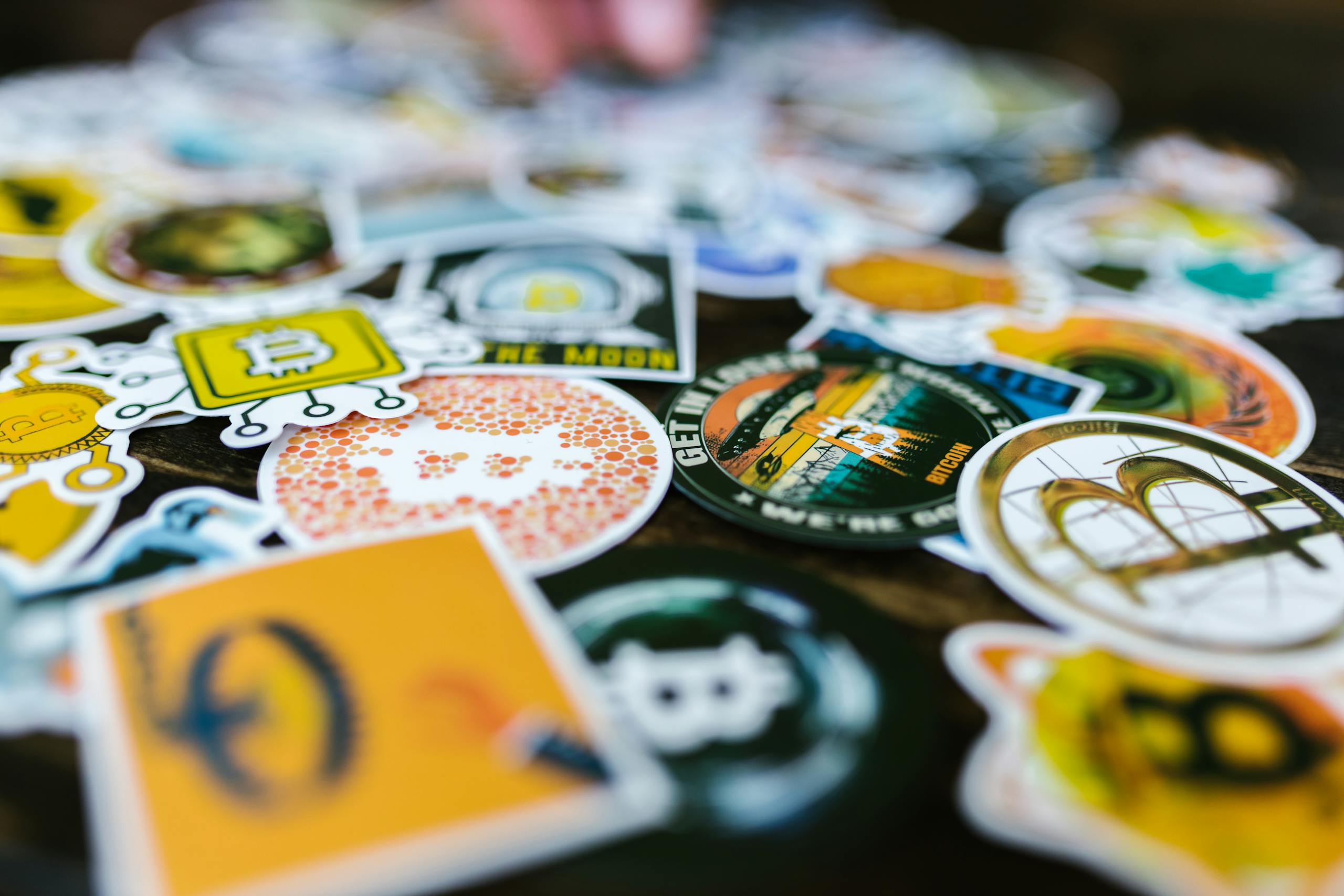Exploring the Future of Work: Thriving in Web3 Job Opportunities
Welcome to a new era of work—the Web3 era. As technology continues to advance at an unprecedented rate, the way we work is transforming. Web3, the next phase of the internet, holds vast potential for job opportunities and career growth, and in this article, we will explore what this future holds. Imagine a world where traditional office structures are replaced by decentralized platforms and blockchain-powered ecosystems.
This is the vision of Web3, where individuals have greater autonomy and control over their work. From freelancing to microtasking, from blockchain development to virtual reality design, the possibilities are endless. In this Web3 landscape, adaptability and upskilling will be essential for thriving in the job market. Innovation and creativity will be highly valued, and the ability to navigate complex ecosystems will become a sought-after skill.
Entrepreneurs and innovators will find fertile ground to bring their ideas to life, while traditional industries may be revolutionized by emerging technologies. Join us on this journey as we delve into the future of work in the Web3 era. Explore the exciting job opportunities that await and learn how you can position yourself for success in this dynamic and ever-evolving landscape.
Understanding the Shift in Job Opportunities
The transition from Web2 to Web3 represents a significant shift in how job opportunities are created, accessed, and executed. In the Web2 era, centralized platforms like Google, Facebook, and Amazon dominated, creating a top-down structure where a few corporations controlled most online activity and data. Jobs were typically concentrated within these large corporations or their networks, with workers adhering to traditional office or remote work models.
Web3 introduces a decentralized model, where power and data are distributed across a network of users rather than being held by a central authority. This democratization of the internet opens up a plethora of job opportunities in areas previously unimaginable. Blockchain technology, the backbone of Web3, allows for the creation of decentralized applications (dApps), smart contracts, and other innovations that drive new kinds of work.
For instance, freelance work and microtasking are gaining traction as decentralized platforms enable peer-to-peer transactions without intermediaries. Web3 jobs span a variety of fields, including blockchain development, decentralized finance (DeFi), non-fungible tokens (NFTs), and virtual reality (VR). The removal of traditional gatekeepers allows individuals from around the world to collaborate and create value in ways that were impossible before. As a result, the demand for new skills and roles will continue to grow, making it essential for workers to adapt to this evolving landscape.
The Rise of Decentralized Autonomous Organizations (DAOs)
One of the most intriguing developments in the Web3 space is the rise of Decentralized Autonomous Organizations (DAOs). DAOs represent a new way of organizing work and governance, where decision-making is decentralized and managed by code rather than by a central authority. Members of a DAO are typically token holders who have voting rights and can participate in the organization’s decision-making processes.
DAOs operate on blockchain technology, ensuring transparency and trust among members. This structure allows for greater flexibility and inclusivity, enabling people from different parts of the world to collaborate on projects without the need for a central office or traditional hierarchical management. Examples of DAOs include investment DAOs, where members pool funds to invest in startups or projects, and creator DAOs, where artists and developers collaborate on producing and monetizing content.
Working within a DAO offers unique opportunities for Web3 professionals, as it allows them to contribute to projects they are passionate about while being part of a decentralized community. Moreover, DAOs often distribute profits and rewards in the form of cryptocurrency, providing an additional incentive for participation.
However, navigating the complexities of a DAO requires an understanding of blockchain technology, governance models, and the legal implications of decentralized work structures. As DAOs continue to evolve, they will likely play a pivotal role in the future of work, offering new avenues for career growth and financial independence .
NFTs and the Creative Economy
Non-fungible tokens (NFTs) have revolutionized the creative economy by providing a new way for artists, musicians, and content creators to monetize their work. NFTs are unique digital assets that represent ownership of a specific item or piece of content, verified by blockchain technology. Unlike cryptocurrencies, which are fungible and can be exchanged for one another, each NFT is unique and cannot be replicated, making it a valuable asset for collectors and creators alike.
The rise of NFTs has created numerous job opportunities within the creative sector. Artists can now sell their digital art as NFTs, earning cryptocurrency instead of traditional currency. Musicians are releasing albums and exclusive content as NFTs, giving fans a way to support them directly while owning a piece of music history. Even writers and filmmakers are exploring NFTs as a way to distribute and monetize their work.
For Web3 job seekers, the NFT space offers roles in digital art creation, smart contract development, NFT marketplace management, and community building. Platforms like OpenSea, Rarible, and Foundation have become hubs for NFT transactions, providing new opportunities for those with expertise in blockchain technology and digital marketing. Additionally, the integration of VR and the metaverse with NFTs is opening up even more avenues for creative professionals to explore.
As the NFT market continues to grow, the need for skilled professionals who understand the intricacies of blockchain, digital assets, and the creative economy will only increase. Those who can adapt to these new technologies and leverage their creative talents in the Web3 era will find themselves well-positioned for success .

Blockchain Technology and its Impact on Finance and Cryptocurrency
Blockchain technology is the foundation of Web3, and its impact on finance and cryptocurrency is profound. At its core, blockchain is a distributed ledger that records transactions across a network of computers. This decentralized nature ensures that no single entity controls the data, making it more secure and transparent.
In the financial sector, blockchain has given rise to decentralized finance (DeFi), a new financial system built on blockchain technology that operates independently of traditional banks and financial institutions. DeFi platforms allow users to lend, borrow, trade, and invest in cryptocurrency without intermediaries, reducing costs and increasing accessibility.
The proliferation of DeFi has created a surge in demand for blockchain developers, financial analysts with knowledge of cryptocurrency, and legal experts who understand the regulatory landscape. Additionally, as more companies explore the use of blockchain for supply chain management, identity verification, and other applications, job opportunities in this space are expanding rapidly.
For those looking to enter the Web3 job market, understanding blockchain technology and its applications in finance is crucial. This knowledge will not only open up opportunities in DeFi but also in other industries that are beginning to adopt blockchain technology, such as healthcare, real estate, and logistics. As blockchain continues to disrupt traditional industries, the demand for skilled professionals in this field will only grow .
Web3 Job Skills and the Importance of Upskilling
As the Web3 landscape evolves, so too do the skills required to thrive in this new era of work. Traditional job roles are being redefined, and new roles are emerging that require a unique combination of technical and soft skills.
Technical skills in blockchain development, smart contract programming, and understanding decentralized networks are becoming increasingly valuable. Programming languages such as Solidity, which is used for writing smart contracts on the Ethereum blockchain, are in high demand. Additionally, knowledge of cryptography, data structures, and distributed systems is essential for many Web3 roles.
However, thriving in Web3 also requires a strong set of soft skills. Adaptability, creativity, and problem-solving are crucial as professionals navigate the complexities of decentralized environments. Communication skills are also vital, especially for those working remotely in global teams or within DAOs, where clear and effective communication is necessary for collaboration and decision-making.
The importance of upskilling cannot be overstated. As the Web3 ecosystem continues to expand, new technologies and platforms will emerge, requiring continuous learning and adaptation. Online courses, coding bootcamps, and blockchain certifications are valuable resources for professionals looking to upskill and stay competitive in the Web3 job market.
Investing in upskilling will not only enhance your career prospects in Web3 but also position you as a leader in this emerging field. By staying ahead of the curve and embracing lifelong learning, you can ensure that you are well-prepared for the opportunities and challenges that lie ahead .
Navigating the Gig Economy in the Web3 Era
The gig economy, characterized by short-term contracts and freelance work, is set to thrive in the Web3 era. With the advent of decentralized platforms, the barriers to entry for freelancers and gig workers are lower than ever before. Web3 provides an environment where individuals can offer their services directly to clients without intermediaries, leading to greater autonomy and earning potential.
Platforms like Ethereum and Solana are already home to decentralized marketplaces where gig workers can find opportunities in areas such as blockchain development, graphic design, content creation, and more. These platforms use smart contracts to automate payments and ensure that freelancers are compensated fairly and promptly for their work.
In addition to traditional gig work, microtasking is also gaining popularity in the Web3 space. Microtasking involves breaking down large projects into smaller tasks that can be completed quickly and efficiently by multiple workers. Decentralized platforms like Hive and Mechanical Turk offer microtasking opportunities in data entry, content moderation, and other areas, allowing individuals to earn cryptocurrency by completing simple tasks.
Navigating the gig economy in the Web3 era requires a solid understanding of decentralized platforms, smart contracts, and cryptocurrency payments. Freelancers must also be proactive in building their online presence and networking within the Web3 community to secure opportunities. By leveraging the power of Web3, gig workers can take control of their careers and explore new avenues for income generation .
The Role of Artificial Intelligence and Automation in Web3 Job Opportunities
Artificial Intelligence (AI) and automation are poised to play a significant role in the Web3 job market. As AI
technologies become more advanced, they are increasingly being integrated into decentralized platforms and blockchain networks to enhance efficiency, security, and scalability.
In the Web3 era, AI-driven smart contracts and decentralized applications (dApps) are becoming more common. These technologies can automate complex processes, such as financial transactions, supply chain management, and data analysis, reducing the need for human intervention. As a result, job roles that involve routine and repetitive tasks may be at risk of automation.
However, AI and automation also create new job opportunities. For example, there is a growing demand for AI specialists who can develop and implement AI algorithms within blockchain networks. Additionally, roles in AI ethics and governance are emerging as companies and organizations seek to ensure that AI technologies are used responsibly and transparently.
The integration of AI with blockchain technology also opens up new possibilities for innovation. For instance, AI can be used to analyze blockchain data and identify patterns, helping organizations make more informed decisions. In the creative economy, AI-generated art and music are becoming popular, creating opportunities for those who can blend AI with human creativity.
Professionals looking to succeed in the Web3 job market should consider developing skills in AI and automation. By understanding how these technologies intersect with blockchain, you can position yourself at the forefront of innovation and take advantage of the new opportunities that AI and automation offer in the Web3 era .
Web3 Job Marketplaces and Platforms
As the demand for Web3 jobs continues to grow, so too does the number of marketplaces and platforms dedicated to connecting job seekers with opportunities in this space. These platforms cater specifically to the unique needs of the Web3 community, offering roles in blockchain development, DeFi, NFTs, and more.
One of the most prominent Web3 job platforms is Gitcoin, a decentralized platform that connects developers with open-source projects. Gitcoin allows developers to earn cryptocurrency by contributing to blockchain and Web3 projects, making it an ideal platform for those looking to build their portfolio and gain experience in the industry.
Another notable platform is Opolis, a decentralized employment cooperative that provides benefits and services to freelancers and independent workers in the Web3 space. Opolis offers healthcare benefits, retirement savings plans, and other services typically associated with traditional employment, making it easier for gig workers to navigate the challenges of freelancing.
For those interested in creative work, platforms like SuperRare and Zora offer opportunities to sell and showcase digital art and NFTs. These platforms provide a marketplace for artists to connect with collectors and monetize their work, leveraging the power of blockchain technology to ensure ownership and provenance.
Job seekers in the Web3 space should also explore Remote3, a job board specifically for remote Web3 jobs. This platform lists opportunities in development, marketing, design, and more, catering to the growing demand for remote work in the Web3 era.
By utilizing these specialized platforms, job seekers can find opportunities that align with their skills and interests, while also building their network within the Web3 community. As the Web3 job market continues to expand, these platforms will play a crucial role in connecting talent with the opportunities of the future .
Embracing the Opportunities of the Web3 Era
The Web3 era is not just a technological revolution; it’s a transformation of the very fabric of how we work and interact. As we move into this new phase, embracing the opportunities that Web3 offers will be essential for anyone looking to thrive in the future job market. From decentralized autonomous organizations (DAOs) to NFTs, blockchain, AI, and the gig economy, the landscape is rich with possibilities for those willing to adapt and innovate.
The key to success in Web3 lies in continuous learning and upskilling, as well as a willingness to explore new ways of working that break free from traditional models. The future of work is decentralized, transparent, and driven by technology—and those who position themselves at the forefront of this change will be the ones to lead in the Web3 era.
So, take the plunge into Web3, explore the vast array of job opportunities available, and start building your future in this exciting and ever-evolving digital landscape. The opportunities are endless, and the time to start is now.













